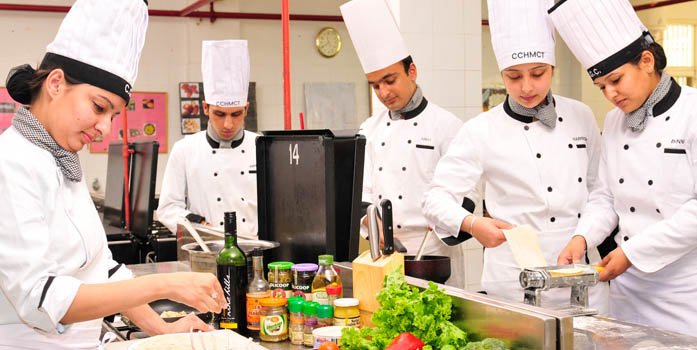Introduction
Picture this: You’re sitting in a hotel restaurant, savoring a perfectly plated meal. The steak is cooked to perfection, the vegetables are fresh and vibrant, and the sauce tastes like a work of art. Behind this seamless dining experience lies the hard work of an often-overlooked hero—the food production department in a hotel.
This department is where the magic happens, blending creativity, precision, and teamwork to deliver exceptional food and beverage experiences. In this article, we’ll explore the inner workings of this crucial hotel department, its structure, and the immense value it brings to hospitality.
What Is the Food Production Department in a Hotel?
The food production department is the heartbeat of a hotel’s culinary operations. It’s responsible for planning, preparing, and presenting food for all the hotel’s dining outlets—whether it’s a fine-dining restaurant, a casual café, or room service.
Think of it as the backstage area of a Broadway show. While guests enjoy the performance out front, the food production team works tirelessly behind the scenes to ensure every dish is a showstopper.
The Role of the Food Production Department
1. Consistency in Quality
Guests expect a certain standard when dining in a hotel. The food production department ensures that every meal, whether served at breakfast or a gala dinner, meets those high expectations.
2. Menu Planning and Development
Creating a menu isn’t just about listing dishes—it’s an art. The team researches trends, sources ingredients, and designs offerings that cater to diverse tastes.
3. Maintaining Hygiene and Safety Standards
This department operates under strict health regulations. From food storage to preparation, every step is monitored to ensure safety and cleanliness.
4. Budget Management
Balancing luxury and cost is no easy feat. The food production team works within budgets to provide top-notch meals without breaking the bank.
5. Guest Satisfaction
Ultimately, the food production department contributes to the overall guest experience. A satisfied guest is more likely to return and recommend the hotel to others.
The Hierarchy in the Food Production Department
Every well-run kitchen has a hierarchy, and the food production department in a hotel is no different. Let’s meet the key players:
Executive Chef
The captain of the culinary ship, the executive chef oversees all kitchen operations. They manage the team, plan menus, and ensure the department runs smoothly.
Sous Chef
The right-hand person to the executive chef, the sous chef takes charge of daily operations, ensuring dishes are prepared to perfection.
Chef de Partie (Station Chef)
Station chefs specialize in specific areas, such as:
- Garde Manger (cold dishes and salads)
- Pastry Chef (desserts and baked goods)
- Sauce Chef (sauces and hot dishes)
Commis Chef
These are junior chefs who assist with basic tasks, such as chopping vegetables or prepping ingredients.
Kitchen Stewards
While not directly involved in cooking, stewards play a crucial role in maintaining cleanliness and ensuring the kitchen runs efficiently.
Daily Operations of the Food Production Department
Managing a hotel’s food production is no walk in the park. Here’s a snapshot of what goes on behind the scenes:
- Early Morning Prep
The day often starts before the sun rises, with chefs prepping for breakfast service. From baking fresh pastries to whipping up made-to-order omelets, the team ensures guests wake up to a feast. - Inventory Checks and Ordering
Running out of ingredients isn’t an option. The team keeps a close eye on stock levels and coordinates with suppliers to replenish items as needed. - Lunch and Dinner Services
These are the busiest times, requiring impeccable coordination. Each team member focuses on their station, ensuring dishes come together harmoniously. - Special Events
Banquets, weddings, and conferences add another layer of complexity. The department often juggles multiple events while maintaining regular service.
Challenges Faced by the Food Production Department
Like any fast-paced operation, the food production department in a hotel faces its share of challenges:
- High-Stress Environment
Working under time pressure while maintaining quality can be exhausting. Chefs often say, “If you can’t stand the heat, get out of the kitchen,” and they mean it. - Guest Expectations
Meeting diverse dietary preferences and handling special requests, like gluten-free or vegan options, requires flexibility and innovation. - Cost Control
The rising cost of ingredients and waste management makes staying within budget a tricky balancing act. - Staff Turnover
The hospitality industry is known for high turnover rates, which can disrupt team dynamics and efficiency.
How the Food Production Department Adds Value
A well-run food production department doesn’t just churn out meals—it elevates the hotel experience. Here’s how:
- Brand Identity
Signature dishes and innovative menus help hotels stand out in a competitive market. - Revenue Generation
Food and beverage sales contribute significantly to a hotel’s bottom line, often acting as a key revenue driver. - Customer Loyalty
Exceptional dining experiences leave lasting impressions, encouraging guests to return.
Trends Influencing the Food Production Department
The culinary world is ever-evolving, and the food production department must keep up. Here are some trends shaping the industry:
- Sustainability
Hotels are increasingly focusing on eco-friendly practices, such as reducing food waste and sourcing local, seasonal ingredients. - Health-Conscious Menus
Guests are more mindful of what they eat, leading to an uptick in requests for organic, low-calorie, and allergen-friendly options. - Fusion Cuisine
Blending flavors from different cultures adds an exciting twist to traditional menus, keeping offerings fresh and innovative.
An Anecdote From the Kitchen
During a recent hotel stay, I chatted with the sous chef while waiting for a cooking demo. He shared a story about how the team once had to whip up a last-minute banquet for 50 guests due to a booking error. With only two hours to prepare, they pulled together a stunning three-course meal. The guests never knew anything was amiss.
This story is a testament to the creativity and resilience of the food production team. They thrive on challenges and consistently go above and beyond to deliver.
Conclusion: The Unsung Heroes of Hospitality
The food production department in a hotel is much more than a kitchen; it’s a hub of creativity, precision, and teamwork. From crafting memorable dining experiences to tackling unexpected challenges, this team plays a pivotal role in the guest journey.
So, the next time you enjoy a perfectly prepared meal at a hotel, take a moment to appreciate the culinary orchestra behind it. Their passion and dedication turn ordinary meals into unforgettable experiences—and that’s worth raising a toast to!
FAQs
What is the main function of the food production department?
The department handles the planning, preparation, and presentation of food, ensuring high-quality meals for all hotel dining services.
How does the food production team maintain hygiene standards?
By following strict protocols, such as regular cleaning, proper storage of ingredients, and adherence to health regulations.
What are the career prospects in hotel food production?
From commis chef to executive chef, there’s a clear path for growth. Opportunities also exist in menu design, catering, and food service management.
How do hotels reduce food waste?
Many hotels implement waste tracking systems, use surplus food creatively, and donate leftovers to local charities.
What’s the role of technology in food production?
Modern kitchens use software for inventory management, ordering, and tracking guest preferences to streamline operations.



